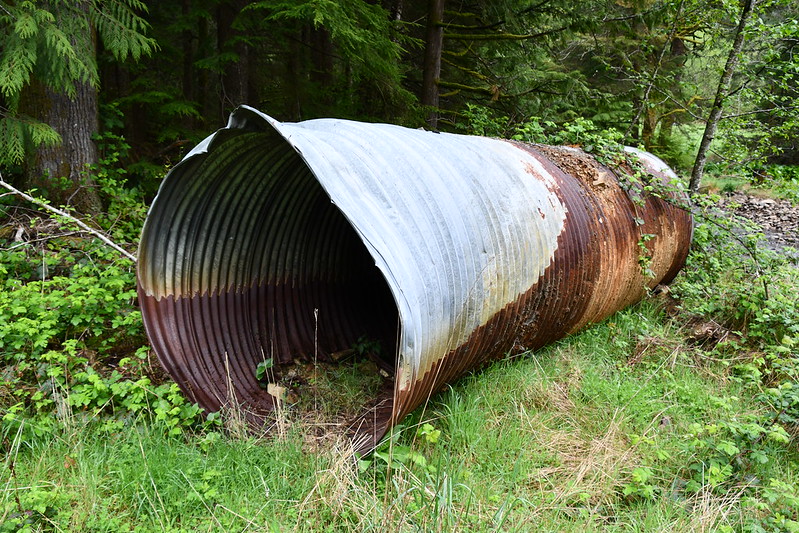Appellate Reversal of Summary Judgment Highlights Purpose of Construction Statute of Repose
In Clayton v. Dixon, 2023 Tenn. App. LEXIS 115 (Tenn. Ct. App. March 23, 2023), a property owner sued adjacent property owners for property damage caused by the installation of an allegedly deficient pipe culvert. Mark Clayton, the owner of residential property, sued his neighbors, Joseph and Faye Dixon, and alleged that the installation of a pipe culvert by the Dixons caused flooding and property damage.
The Dixons claimed protection under the construction statute of repose, arguing that Mr. Clayton’s lawsuit was time-barred. The trial court initially granted summary judgment in favor of the Dixons, but the decision was reversed on appeal. The Court examined Tenn. Code Ann. § 28-3-202, which generally establishes a four-year time limit for “[a]ll actions to recover damages for any deficiency in the design, planning, supervision, … or construction of an improvement to real property.” Unlike a statute of limitations, which is based on the accrual of a cause of action (i.e., when the plaintiff knows or should know an injury has been sustained), the statute of repose runs from the date of substantial completion of the improvement. However, Tenn. Code Ann. § 28-3-205(a) provides an exception to the broad language of Tenn. Code Ann. § 28-3-202. Under this exception:
“[The four-year limitation under the statute of repose] shall not be asserted as a defense by any person in actual possession or… control, as owner, tenant, or otherwise, of [the] improvement at the time any deficiency in such an improvement constitutes the proximate cause of the injury…for which it is proposed to bring an action.”
In 2004, Mr. Clayton purchased a property in the Whites Creek area of Davidson County, Tennessee. The Dixons owned the adjacent property. A natural watercourse ran north to south through both properties. In 2011, the Dixons built an access road connecting the western side of their property to Laws Road. They installed a 42-inch corrugated metal pipe underneath their road—and downstream from the Clayton property—for storm water drainage.
In 2019, Mr. Clayton alleged that the culvert’s improper installation obstructed the downstream flow of water, leading to flooding on his property. Both parties filed cross-motions for summary judgment, and the trial court granted judgment in favor of the Dixons based on the statute of repose for defective improvements to real property.
The Chancery Court granted summary judgment to the Dixons based on the statute of repose for defective improvements to real property. The Tennessee Court of Appeals reversed and held that the statute of repose for defective improvements to real property could not be invoked by the Defendants. The Court clarified that the statute of repose should not be available to those in possession or control of the allegedly deficient improvement at the time the deficiency causes injury. The Dixons argued that the availability of the statute of repose depended not on possession or control, but on whether the plaintiff could establish proximate cause at the onset of litigation. The Court rejected this interpretation, emphasizing that the exception’s intent was to exclude property owners from the protection of the statute of repose. The Court’s interpretation of the exception within the statute of repose aligns with the legislature’s intent. The goal of the statute is to protect contractors, architects, and engineers from liability arising from deficiencies in design or construction. By excluding property owners from the protection, the legislature recognized the distinction between building professionals and landowners.
The Court emphasized the importance of considering the context and purpose of the exception. Interpreting the exception as contingent upon proving proximate cause at the outset of litigation would lead to an absurd result, contradicting the intent of the statute. Legal interpretations should align with legislative intent, and ambiguous language within statutes should be construed in context and considering the general purpose of the law.
What’s the takeaway?
This case serves as a reminder of the importance of context and legislative history in statutory interpretation. Here, the purpose of the statute of repose is to protect designers and contractors, not owners. While a statute may be subject to several interpretations, appellate courts seek to “not apply a particular interpretation to a statute if that interpretation would yield an absurd result.”
As always, when in doubt, contact your attorney.
Photo credit: NRCS Oregon licensed under CC BY-ND 2.0 Deed.





